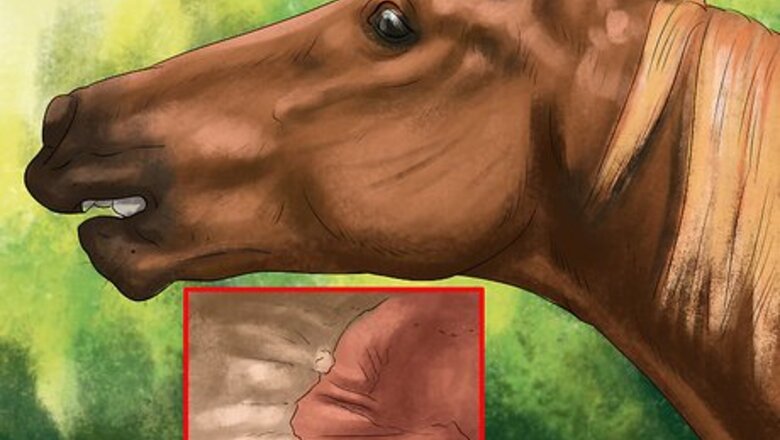
views
Identifying Gastric Ulcers
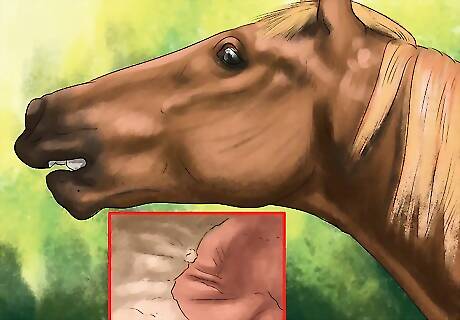
Notice any behavioral changes. Symptoms of gastric ulcers can be nonspecific and hard to notice. Your horse may alter their behavior if they have a stomach ulcer. Their attitude may change and they may become less eager to do things they used to. The horse may act irritably or dazed. The horse may not perform as well or enthusiastically as before, and they may be reluctant to train like they used to. Your horse may seem nervous or not want to do certain moves as before. Bruxism, or teeth grinding, is one of the most common behavioral changes with ulcers.
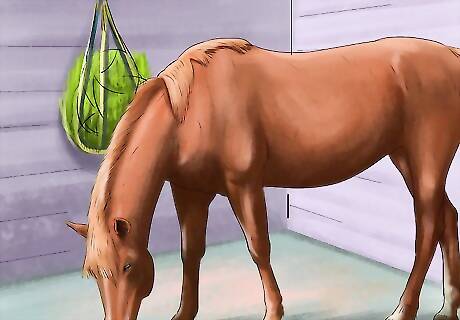
Check for digestive problems. A symptom of gastric ulcers is poor or reduced appetite. Your horse may be reluctant to eat when presented with food or may graze less. After they begin eating, they may stop and walk away because the food hurts their stomach. Due to this, your horse may lose weight.
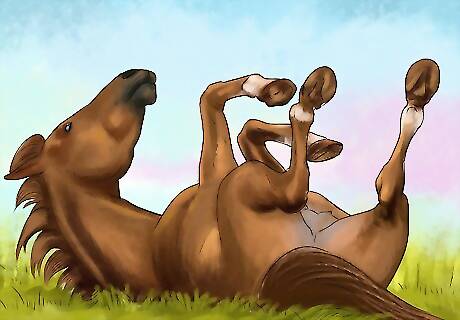
Watch for overall poor health. Gastric ulcers can lead to a decline in your horse’s overall condition. Look for any decline or changes in your horse’s health or bodily condition. You may also look for any problems with the horse’s coat. Your horse may feel lethargic, so they may spend more time lying around than usual. They may also lie on their back to try to help relieve the pain from the ulcers.
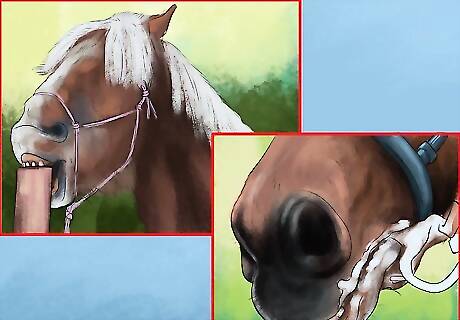
Look for wood-chewing. If your horse has a gastric ulcer, they may start chewing wood or cribbing. Chewing wood helps the horse produce more saliva, which can help neutralize stomach acid. If you notice this behavior, your horse could potentially have stomach ulcers.
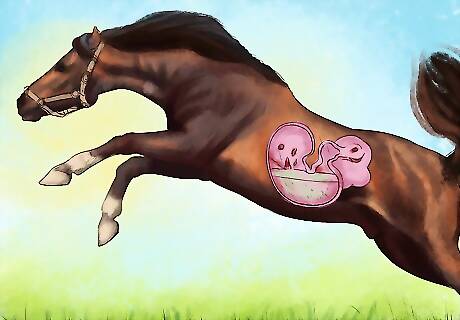
Know that gastric ulcers are common in athletic horses. Stomach ulcers are common in all horses, but they occur more commonly in athletic and active horses. Thoroughbred race horses, endurance horses, and show horses seem to have the highest chances of ulcers. If you have an athletic or extremely physically active horse, your horse may be more prone to gastric ulcers. Exercise moves the acid in the stomach around, which can get it up in the upper and vulnerable part of the stomach. Exercise can also lead to more stomach acid production. These things can cause ulcers.
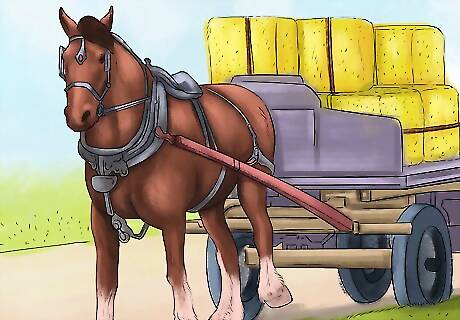
Recognize that stress can cause ulcers. Horses that are under certain types of stress can develop gastric ulcers. Stressors include being hauled around or being enclosed in unfamiliar stalls, both of which happen when going to and from horse shows or races. Changes in schedules can also lead to ulcers. It may take up to five days to develop the ulcers. Your performance horse may appear fine and unstressed, but the hauling or shipping can lead to ulcers.
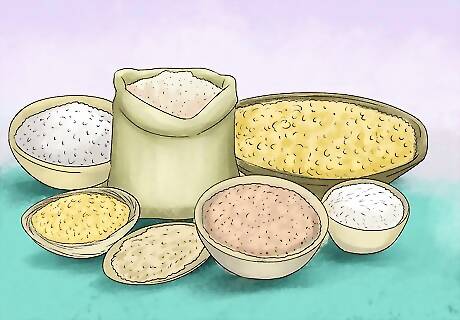
Know that diet can lead to ulcers. The way you feed your horse can lead to ulcers. Changing your horse’s diet suddenly may lead to an ulcer. Feeding your horse a diet high in carbohydrates can lead to gastric ulcers or acid reflux due to the fatty acids released by the carbohydrates. Horses that are not allowed to graze throughout the day for food and are instead fed twice a day can develop ulcers. This is due to the stomach’s natural acids and schedule getting off by a non-natural feeding plan. Horses are grazing animals and having them graze steadily throughout the day will allow them to produce an even amount of stomach acid and natural digestion.
Spotting Symptoms of Colonic Ulcers
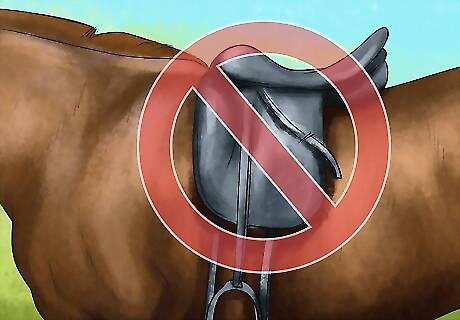
Look for any problems with the flank. If your horse has colonic ulcers, your horse may have sensitivity to its flank, which suggests a digestive problem like an ulcer. The horse may also resist having a saddle put on it due to pain in that area.
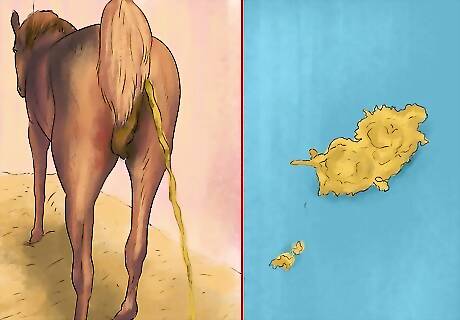
Notice any digestive problems. Colonic ulcers can cause problems with the horse’s digestive system. The horse may not want to eat, which may lead to weight loss. Your horse may also have diarrhea or loose, watery stools. This is often caused by an ulcer in the colon. Colic or colic symptoms may also point to a colonic ulcer. Your horse may paw the ground or lay down a lot. They also may develop mild anemia and have a poor quality hair coat. Colonic ulcers often present as nonspecific symptoms including recurrent colic episodes.
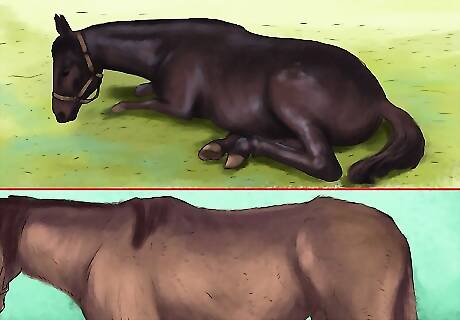
Check for behavioral changes. Colonic and gastric ulcers both affect the horse’s overall behavior. Your horse may act lethargic or irritable, and they may refuse to do work or exercises that they used to do. Your horse may not have as much energy or stamina as they used to. Your horse may have poor body condition, such as a dull coat or decreased vitality.
Recognizing Symptoms of Corneal Ulcers in Horses
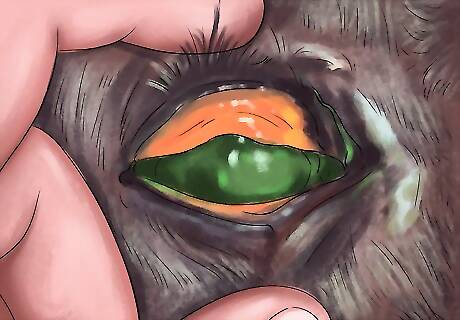
Notice any redness or swelling. One common symptom of corneal ulcers is redness of the eye. The area around the eye may also be swollen. The eye may be infected. The horse may have trouble opening or closing the eyelid, which may look like they’re squinting. If the horse has an injury to its eye, then the horse might try to protect it by holding the eye shut.
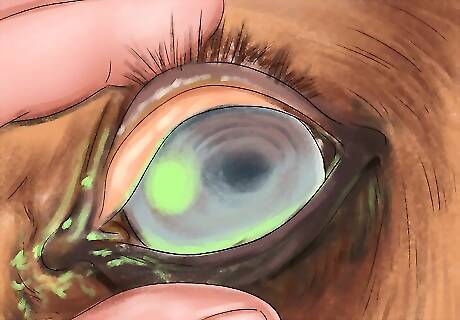
Look for discharge. Corneal ulcers may cause discharge from the eyes. This discharge may be clear or milky or white. It may be greenish or yellow, which can point to infection. The horse may have tears leaking from the eyes, or damp areas under the eyes to indicate tears.
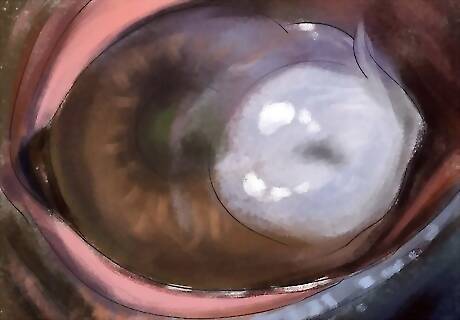
Notice any changes in the appearance of the eyes. Another symptom of corneal ulcers is changes to the eyes or corneas. The surface of the eye may start to take on a cloudy or dull appearance, which changes the color of the horse’s eye. The ulcers may cause problems with the blood vessels, so the cornea may start to look bloody or dark red.
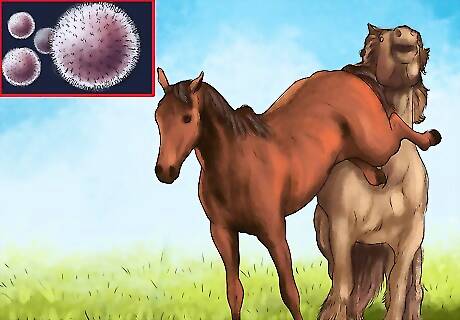
Identify the risk factors for corneal ulcers. Corneal ulcers occur from an injury to the eye. Your horse may get a corneal ulcer from running into something with their head or something entering or scraping the eye, like a branch or dust. If the horse gets into a violent altercation with another horse, it can cause a corneal ulcer if the eye is hit or damaged. It may also be caused by a fungus or bacteria.
Take action as soon as you recognize symptoms. Eyes can deteriorate and eye injuries can become very serious very quickly. If you see your horse has drainage from its eye, or the eye is swollen or being held shut, contact your veterinarian immediately. Eye injuries are considered emergencies and your vet will want to sedate the horse and look in the eye to find the specific cause of injury. Do NOT put any medication in the eye until your doctor has confirmed whether it is an ulcer or not. If you put some medications in an eye with an ulcer this could make the eye much worse and potentially cause permanent damage.













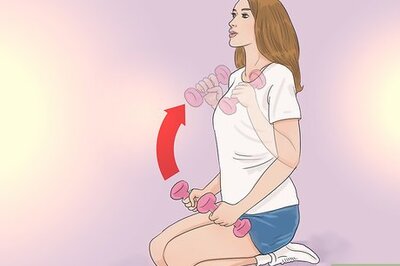

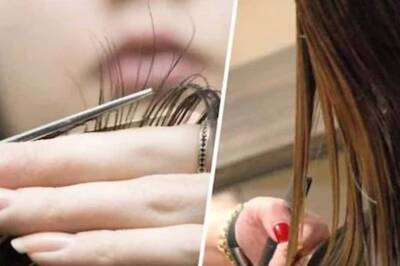
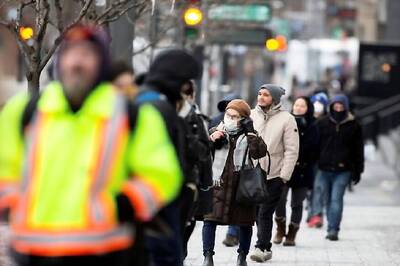



Comments
0 comment